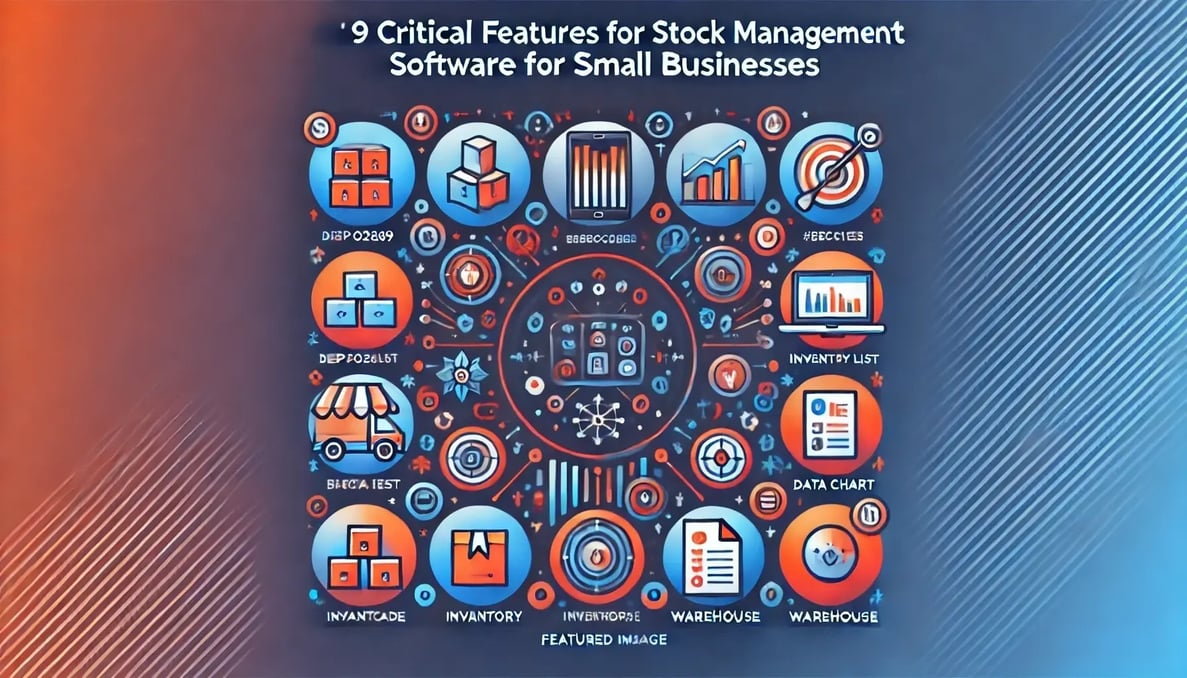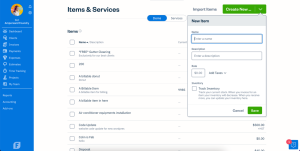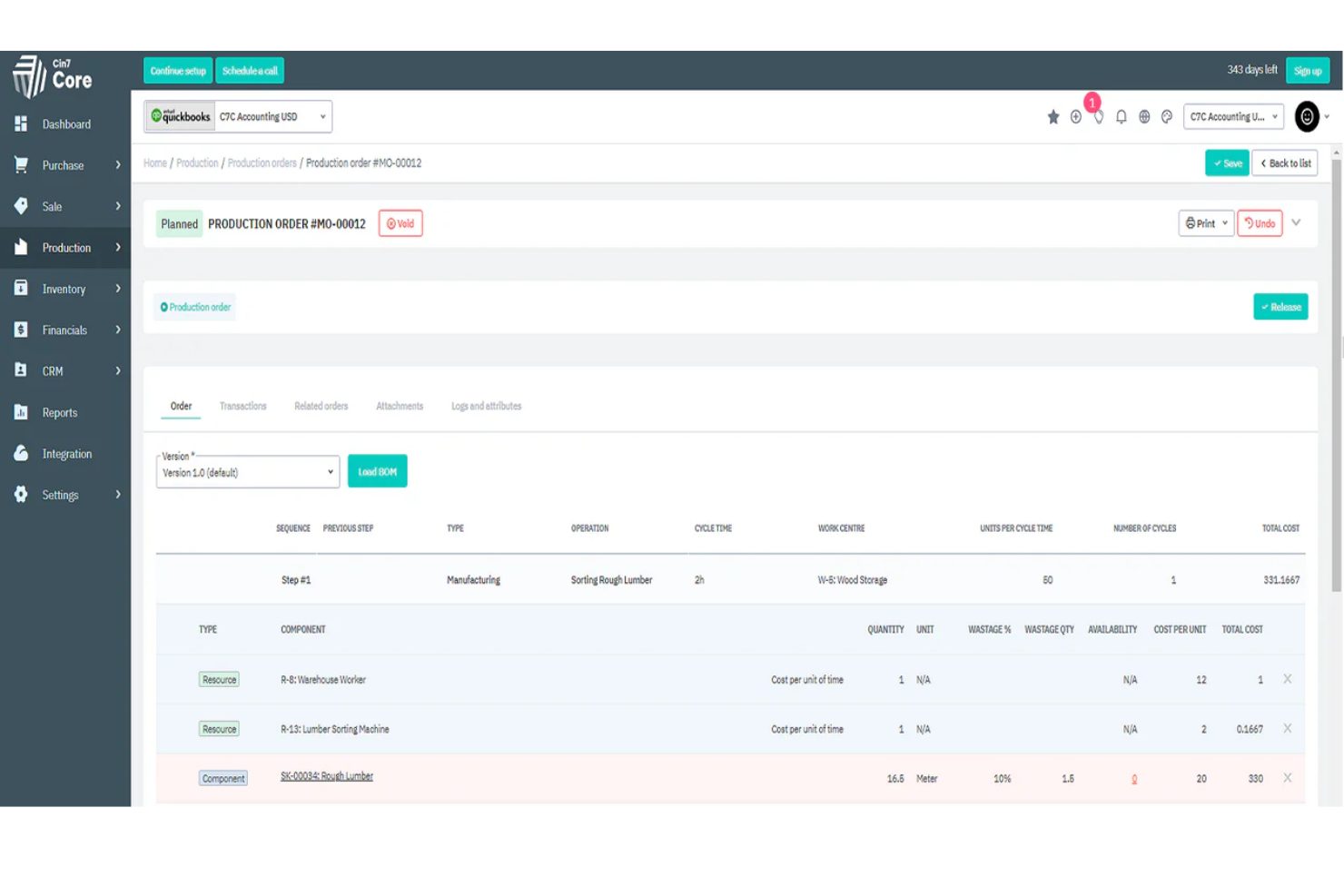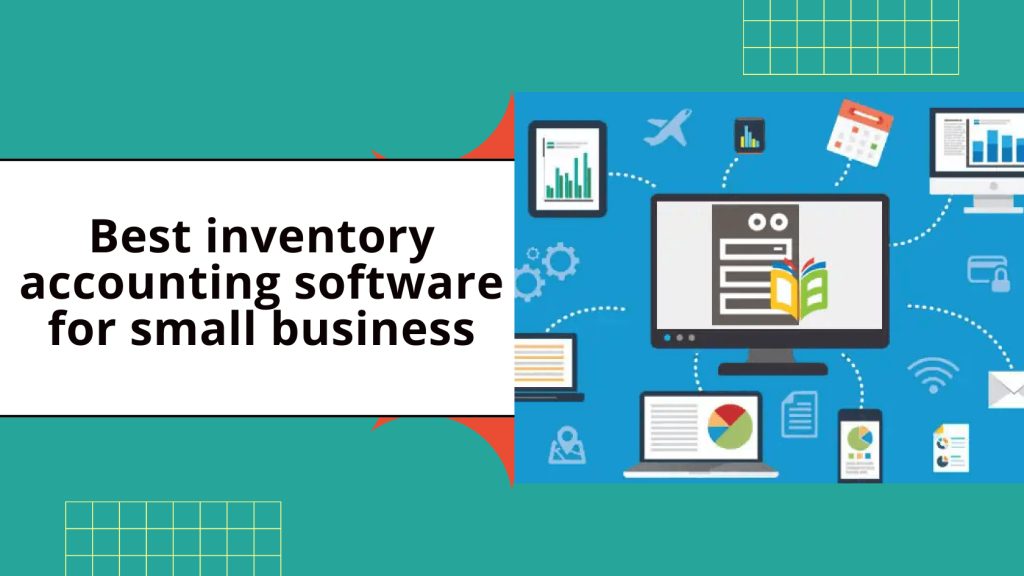Managing inventory is crucial for small businesses. The right software can make a big difference.
Small businesses often struggle with inventory management. Balancing stock levels, tracking sales, and maintaining accurate records can be challenging. Inventory accounting software simplifies these tasks. It helps businesses save time and reduce errors. With many options available, finding the best one can be tough.
This guide will help you choose the right inventory accounting software. We will explore top options, focusing on features, ease of use, and affordability. By the end, you will know which software suits your business needs. Get ready to streamline your inventory management and boost your business efficiency.

Credit: www.skunexus.com
Introduction To Inventory Accounting Software
Inventory accounting software helps small businesses manage and track their inventory. It automates tasks like stock management, orders, and sales. This software is crucial for businesses to maintain accurate records. It also helps in reducing errors and saving time.
Importance For Small Businesses
For small businesses, accurate inventory tracking is vital. It prevents overstocking and understocking. Overstocking ties up capital and space. Understocking leads to missed sales opportunities. Inventory accounting software helps in maintaining the right balance. It provides real-time data, which aids in making informed decisions.

Key Features To Look For
When choosing inventory accounting software, consider these key features:
- User-Friendly Interface: The software should be easy to navigate and use.
- Real-Time Tracking: Allows for up-to-date inventory levels.
- Automated Reordering: Helps in maintaining optimal stock levels.
- Reporting and Analytics: Provides insights into sales and inventory trends.
- Integration: Should integrate with existing systems like accounting software.
- Scalability: The software should grow with your business.
| Feature | Importance |
|---|---|
| User-Friendly Interface | Ensures ease of use for all employees. |
| Real-Time Tracking | Provides up-to-date inventory levels. |
| Automated Reordering | Helps maintain optimal stock levels. |
| Reporting and Analytics | Offers valuable insights into business trends. |
| Integration | Works well with your current systems. |
| Scalability | Grows as your business expands. |
Choosing the right software is essential for business success. It saves time and reduces errors. It also helps in making informed decisions. Small businesses must invest in good inventory accounting software.
Quickbooks Commerce
Managing inventory can be challenging for small businesses. QuickBooks Commerce offers a comprehensive solution. It streamlines inventory management and integrates seamlessly with QuickBooks’ accounting features.
Overview
QuickBooks Commerce is designed to simplify your inventory tasks. It supports various business needs, including stock tracking, order management, and multi-channel sales. The software is cloud-based, ensuring you can access your data from anywhere. This flexibility is crucial for small business owners who need real-time information.
Pros And Cons
| Pros | Cons |
|---|---|
|
|
QuickBooks Commerce offers many benefits. Its integration with QuickBooks Online is a significant advantage. This feature ensures your inventory and financial data are always in sync. The software’s user-friendly interface makes it accessible even for those with limited tech skills. Additionally, it supports multi-channel sales, making it easier to manage orders from various platforms.
On the downside, QuickBooks Commerce can be costly. The price increases with advanced features. Some users may find the initial setup process challenging. Furthermore, the software offers limited customization options. This might not suit businesses with specific needs. Lastly, being a cloud-based solution, it requires a stable internet connection.
Zoho Inventory
Zoho Inventory is a comprehensive inventory management solution designed for small businesses. This powerful software helps you manage orders, track inventory, and streamline sales across multiple channels. Zoho Inventory is part of the Zoho suite, known for its user-friendly interface and robust features.
Overview
Zoho Inventory offers a wide range of features that make it a top choice for small businesses. The software integrates seamlessly with other Zoho products, providing a cohesive experience. It supports multi-channel selling, enabling you to manage orders from different platforms like Amazon, eBay, and Shopify in one place.
Key features include:
- Order management
- Inventory tracking
- Warehouse management
- Accounting integration
- Automated workflows
- Barcode scanning
Zoho Inventory also offers powerful reporting tools, helping you make data-driven decisions. With its mobile app, you can manage your inventory on the go.
Pros And Cons
Before choosing Zoho Inventory, consider its pros and cons. These will help you determine if it’s the right fit for your business.
| Pros | Cons |
|---|---|
| User-friendly interface | Limited advanced features for large businesses |
| Seamless integration with other Zoho products | Learning curve for new users |
| Supports multi-channel selling | Occasional sync issues with sales channels |
| Powerful reporting tools | Limited customizability in reports |
| Affordable pricing | Customer support response time can be slow |
Overall, Zoho Inventory is a great option for small businesses. Its features and integrations make managing inventory simple and efficient.
Tradegecko
TradeGecko is a popular inventory accounting software designed for small businesses. It offers comprehensive features that help manage stock, orders, and customer relationships. TradeGecko is known for its user-friendly interface and robust functionality. This makes it a great choice for small business owners. Let’s dive deeper into what TradeGecko has to offer.
Overview
TradeGecko provides a centralized platform for managing inventory, orders, and sales. It integrates seamlessly with various e-commerce platforms and marketplaces. The software supports multiple currencies and languages, making it suitable for international businesses. With TradeGecko, you can automate many inventory-related tasks, saving you time and effort.
Key features include:
- Real-time inventory tracking
- Order management
- Customer relationship management (CRM)
- Detailed analytics and reporting
- Integration with accounting software like QuickBooks and Xero
Pros And Cons
| Pros | Cons |
|---|---|
|
|
TradeGecko is a strong option for small businesses needing solid inventory management. The pros often outweigh the cons, making it a valuable tool for growth and efficiency.
Cin7
Cin7 offers top-notch inventory accounting software for small businesses. It helps manage stock efficiently and streamline operations. Ideal for growing companies.
Overview
Cin7 is a powerful inventory accounting software designed for small businesses. It integrates inventory management, order management, and more. With Cin7, businesses can track inventory in real-time, manage orders efficiently, and sync all sales channels. This ensures better control and visibility over the entire supply chain.
Cin7 offers robust features that cater to various industries, including retail, wholesale, and manufacturing. Its user-friendly interface and comprehensive functionalities make it a popular choice among small businesses.
Pros And Cons
| Pros | Cons |
|---|---|
|
|
Cin7 stands out due to its comprehensive features and seamless integrations. Real-time tracking of inventory helps businesses maintain optimal stock levels. The software’s ability to sync with multiple sales channels ensures a unified inventory system. Users appreciate the customizable reports, which provide valuable insights into business performance.
Despite its many benefits, Cin7 comes with some downsides. The cost can be high, especially for small businesses with limited budgets. Additionally, there might be a learning curve for new users. Some customers have also reported slow response times from customer support.

Credit: www.freshbooks.com
Ordoro
Choosing the right inventory accounting software can transform your business operations. One software that stands out is Ordoro. It is a comprehensive tool designed to streamline inventory management for small businesses. This section will explore Ordoro’s key features, advantages, and drawbacks.
Overview
Ordoro is a powerful inventory management solution. It helps small businesses manage their stock efficiently. With Ordoro, you can automate dropshipping, manage suppliers, and track inventory across multiple channels. This software integrates with popular e-commerce platforms like Shopify, Amazon, and eBay.
Pros And Cons
| Pros | Cons |
|---|---|
|
|
Choosing Ordoro can save you time and reduce errors. The software’s automation features are particularly beneficial. Nonetheless, it may be more expensive compared to other options. New users might also need some time to get used to the system. Despite these downsides, Ordoro remains a strong choice for small businesses looking for efficient inventory management.
Inflow Inventory
Choosing the right inventory software is crucial for small businesses. InFlow Inventory stands out as a user-friendly option. It helps manage stock levels, track orders, and enhance efficiency.
Overview
InFlow Inventory is designed to simplify inventory management. It offers a range of features that cater to the needs of small businesses. The software provides real-time tracking, detailed reports, and seamless integration with other tools. It’s suitable for businesses looking to streamline their processes and improve accuracy.
Pros And Cons
| Pros | Cons |
|---|---|
|
|
InFlow Inventory combines essential features with ease of use. It helps small businesses manage their inventory effectively. The software offers real-time tracking and detailed reports. Although it may have limited customization, its integration capabilities are a plus.
Choosing The Right Software
Choosing the right inventory accounting software is critical for small businesses. It ensures efficient inventory management and smooth business operations. The right software can save time, reduce errors, and provide valuable insights into your business. This section will help you understand the key factors to consider and guide you in making the final decision.
Factors To Consider
When choosing inventory accounting software, consider the following factors:
- Cost: Ensure the software fits your budget. Look for hidden fees.
- Features: Check if it offers the features you need. Examples include tracking, reporting, and integration.
- User-Friendliness: The software should be easy to use. This is important for non-technical staff.
- Customer Support: Good support can save you from headaches. Look for 24/7 support if needed.
- Scalability: Choose software that can grow with your business. You do not want to switch software later.
Making The Final Decision
To make the final decision:
- Trial Versions: Test the trial versions of the top choices.
- Read Reviews: Read customer reviews and feedback.
- Ask for Recommendations: Seek recommendations from other small business owners.
- Vendor Demos: Attend vendor demos to see the software in action.
- Compare Options: Create a comparison table to weigh pros and cons.
Here is a sample comparison table:
| Software | Cost | Features | User-Friendliness | Customer Support | Scalability |
|---|---|---|---|---|---|
| Software A | $$ | Tracking, Reporting | Easy | 24/7 | Yes |
| Software B | $ | Integration, Reporting | Moderate | Business Hours | No |
| Software C | $$$ | Tracking, Integration | Easy | 24/7 | Yes |
By considering these factors and steps, you can find the best inventory accounting software for your small business.

Credit: thecfoclub.com
Frequently Asked Questions
What Is Inventory Accounting Software?
Inventory accounting software helps businesses track and manage inventory levels. It simplifies stock management and financial reporting, ensuring accurate records.
Why Is Inventory Accounting Software Important?
Inventory accounting software is vital for small businesses. It helps optimize stock levels, reduce errors, and improve financial accuracy, leading to better decision-making.
How Does Inventory Accounting Software Benefit Small Businesses?
It streamlines inventory management, reduces manual errors, and saves time. It also provides real-time data, helping small businesses make informed decisions.
Can Inventory Accounting Software Integrate With Other Systems?
Yes, most inventory accounting software can integrate with other systems. This includes accounting, e-commerce, and point-of-sale systems, enhancing overall efficiency.
Conclusion
Choosing the best inventory accounting software is crucial for small businesses. It helps manage stock efficiently and reduces errors. With the right software, you can save time and money. Review the options and select one that fits your needs. Ease of use and customer support are key factors.
Don’t forget to consider scalability as your business grows. The right software will streamline operations and boost productivity. Make an informed choice to support your business success.


